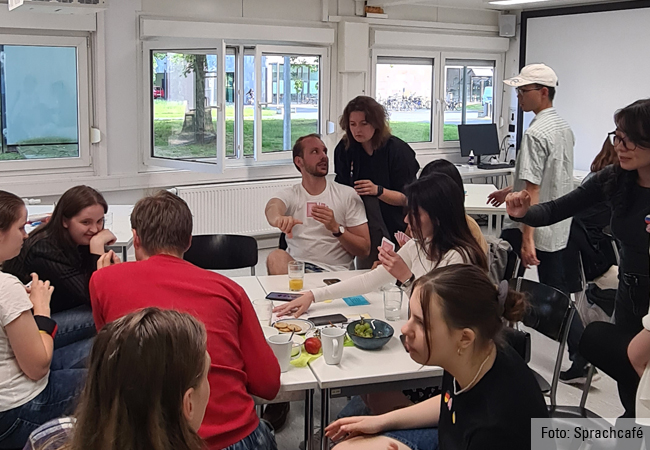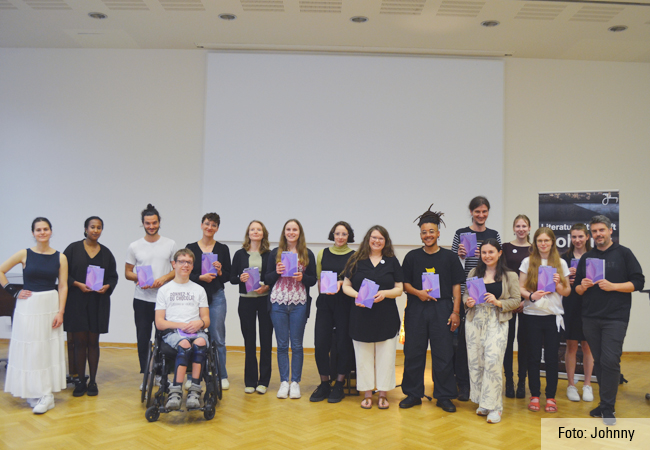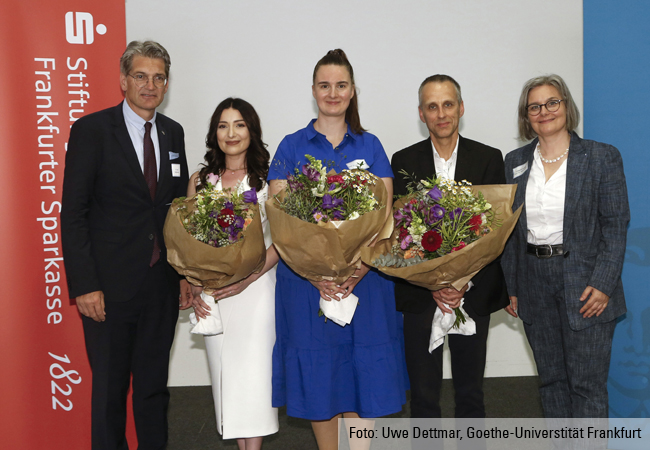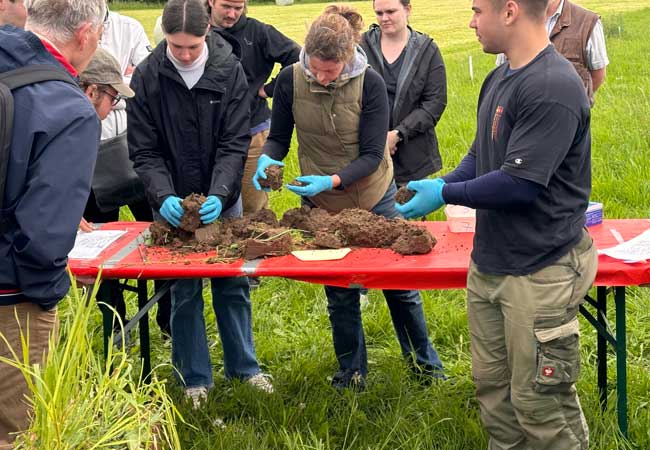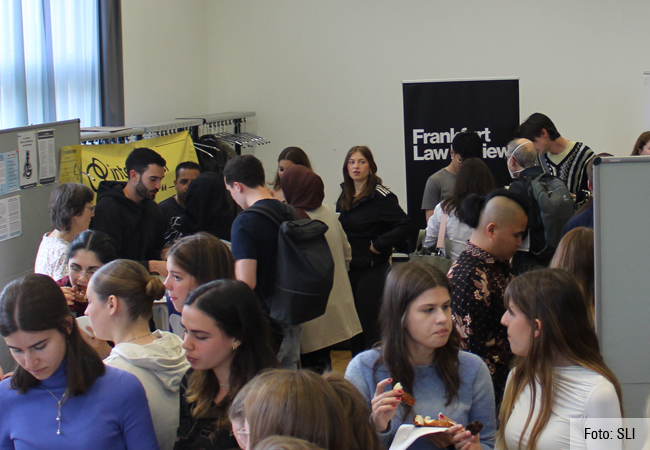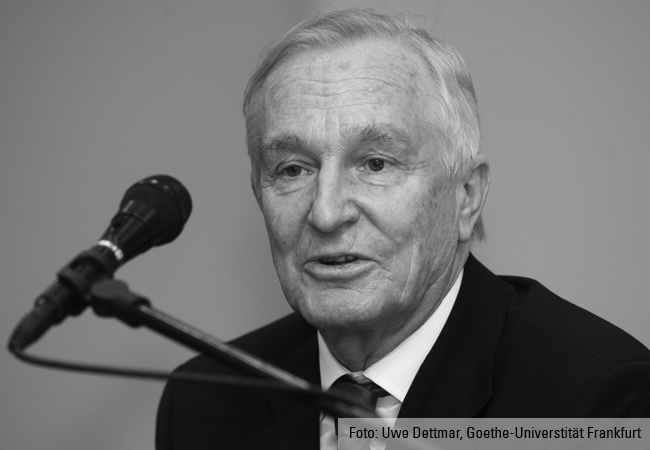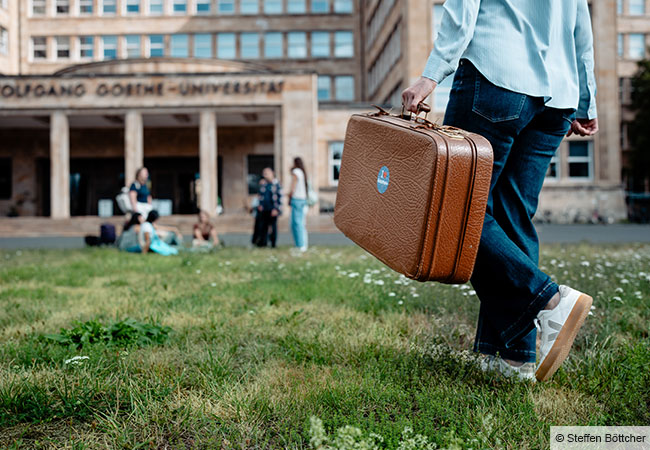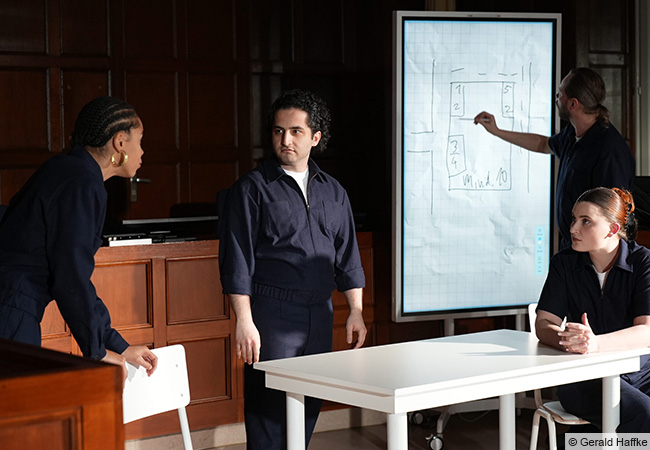Law students Sirin Yilmaz and Charlotte Schraut were successful in the ELSA Negotiation Competition.
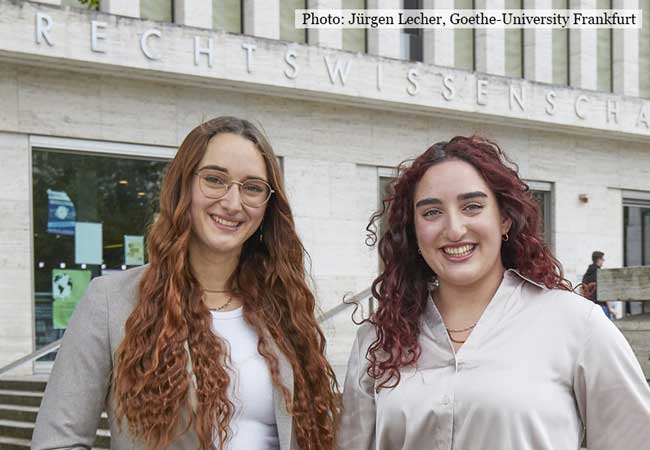
Expressed in sporting terms, the two have had a good run: They came in first in the regional competition and second in the national competition. Law students Sirin Yilmaz and Charlotte Schraut have so far made a very successful team. How did it all start? They came across the announcement for the ELSA Negotiation Competition one day, a simulation of a negotiation process between two contracting parties. Similar simulations also exist in law in the shape of “moot courts”. Charlotte Schraut describes the procedure: “Two days before the actual competition, each team receives the facts of the case. We were given an employment contract that we had to negotiate as lawyers for a potential employer. You then compete against a team acting as lawyers for the potential employee.” A panel of three judges – legal practitioners – assesses how the two teams perform. First, each team has five minutes to present their strategy, then the actual contract negotiations begin. Each team may comment afterwards on the results. “Among other things, the panel evaluates how you act as a team, what strategy you pursue and, of course, your language skills, because the negotiations take place in English,” explains Sirin Yilmaz. The language aspect is a factor that should not be underestimated: Sirin and Charlotte already speak very good English. “It’s a bit strange at first, as you’ve hardly had any contact with the English language since leaving school, apart from on vacation, but you soon get used to it again,” they both confirm. They add that it allows you to test your proficiency in English legalese for the first time, as law studies in Germany are rather specialized, even if the option of acquiring additional qualifications exists. “Soft skills are very important, especially for applying specialist knowledge,” says Sirin. They both believe that participating in the ELSA Negotiation Competition has also broadened their career horizons. “Since the beginning of my studies, I have focused more on criminal law, but now I could definitely imagine working in a commercial law firm, at least for a while. Negotiations are fun, they give you an impression of how everyday professional life might look like.” Sirin agrees; at the beginning of her studies, she wanted to become a judge. After her positive experience in the competition, she could now certainly imagine working in a law firm one day.
Further information on the ELSA Negotiation Competition can be found here: https://elsa.org/enc/.


